The Importance of Screening for Atrial Fibrillation and Hypertension in the Fight Against Stroke
Published: 06 November 2023
-
Views:
 8186
8186
-
Likes:
 7
7
-
Views:
 8186
8186
-
Likes:
 7
7
-
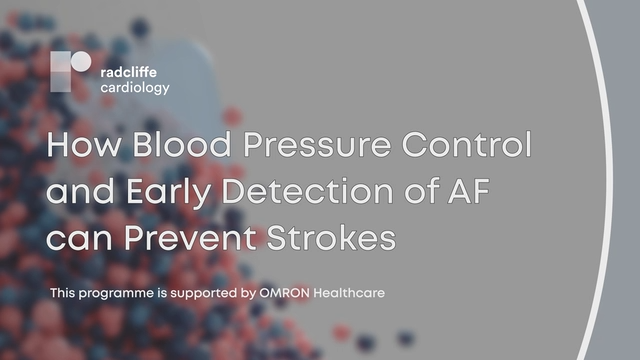 14m 10sPart 1 | Session 1 How Blood Pressure Control and Early Detection of Atrial Fibrillation can Prevent Strokes Gerhard Hindricks
14m 10sPart 1 | Session 1 How Blood Pressure Control and Early Detection of Atrial Fibrillation can Prevent Strokes Gerhard Hindricks
-
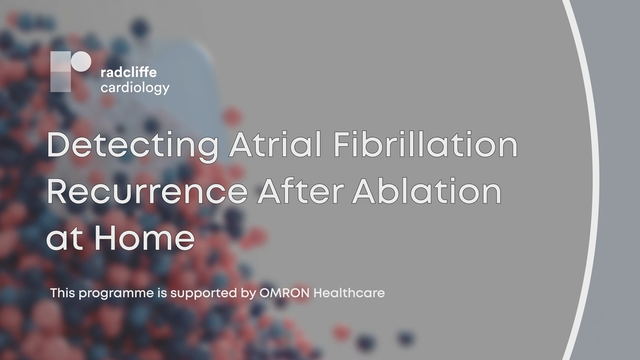 9m 14sPart 1 | Session 2 Detecting Atrial Fibrillation Recurrence After Ablation at Home Keitaro Senoo, Gerhard Hindricks
9m 14sPart 1 | Session 2 Detecting Atrial Fibrillation Recurrence After Ablation at Home Keitaro Senoo, Gerhard Hindricks
-
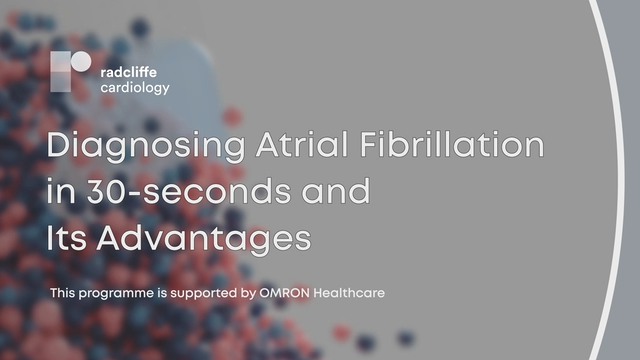 18m 3sPart 1 | Session 3 Diagnosing Atrial Fibrillation in 30-seconds and Its Advantages Gerhard Hindricks, Faizel Osman, Keitaro Senoo
18m 3sPart 1 | Session 3 Diagnosing Atrial Fibrillation in 30-seconds and Its Advantages Gerhard Hindricks, Faizel Osman, Keitaro Senoo
-
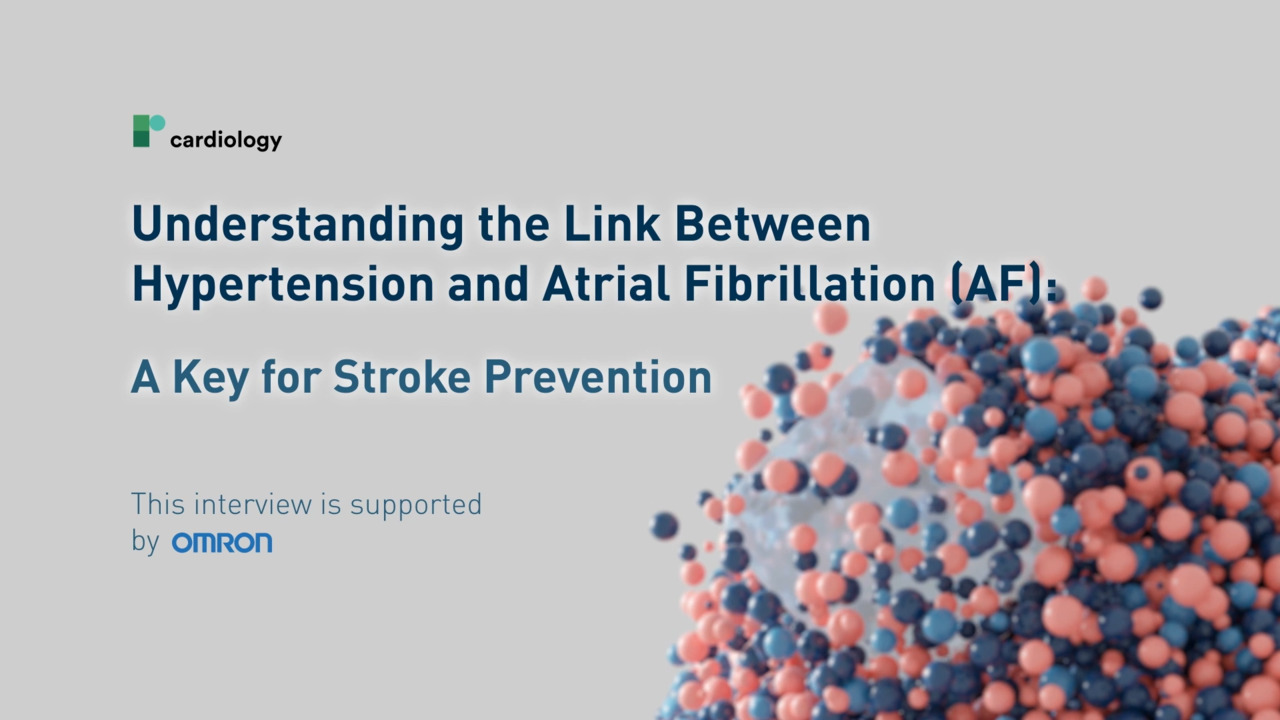 11m 4sPart 2 Understanding the Link Between Hypertension and Atrial Fibrillation Faizel Osman, Alta Schutte
11m 4sPart 2 Understanding the Link Between Hypertension and Atrial Fibrillation Faizel Osman, Alta Schutte
Overview
This video series page covers content associated with Atrial Fibrillation. AFib is associated with a 5x greater risk of stroke, however with effective treatment, the risk of stroke can be reduced.¹ The lifetime risk for AFib is 1 in 3 individuals² and it often occurs with hypertension. Early detection is key, to allow for prompt and satisfactory disease management to not only control symptoms but also to prevent further complications.² Opportunistic screening for AFib is recommended in hypertensive patients. Definite diagnosis of AFib in screen-positive cases is established only after physician reviews the single-lead ECG recording of ≥30s or 12-lead ECG and confirms that it shows AFib. According to the 2020 ESC medical guidelines on AFib.¹
In part 1, Omron bring together renowned faculty including Prof Gerhard Hindricks (Charite University Hospital, DE), Dr Keitaro Senoo (Kyoto Prefectural University of Medicine, JP) and Prof Faizel Osman (University Hospitals of Coventry and Warwickshire NHS Trust, UK) where they understand why the interaction between hypertension control and detecting atrial fibrillation is of prognostic importance for stroke, whilst also, making the viewer aware of the importance of early detection and management of hypertension and atrial fibrillation to prevent strokes.
In part 2 – 3 we are joined by experienced doctors in compelling discussions, as they present a clinical case of asymptomatic AF and delve into the link between hypertension and AF. Discover how chronically elevated blood pressure can lead to heart changes, increasing the risk of AF and explore common risk factors that create a synergistic effect, amplifying the overall risk.
For more information visit the Omron Academy following the link here.
References:
1. Balanis T, Sanner B. Detection of Atrial Fibrillation Using a Home Blood Pressure Monitor. Vasc Health Risk Manag 2021;17:407–14.
2. Hindricks G, Potpara T, Dagres N, et al. 2020 ESC Guidelines for the diagnosis and management of atrial fibrillation developed in collaboration with the European Association of Cardio-Thoracic Surgery (EACTS). Eur Heart J 2020;00:1–126.

Key Learning Objectives
- Understand the strong correlation between hypertension and atrial fibrillation (AF) and how chronically elevated blood pressure can increase the risk of AF
- Identify the shared risk factors between hypertension and AF and recognise their synergistic effect in amplifying the overall risk of developing both conditions
- Evaluate the significance of early detection of AF and a proper blood pressure control for stroke prevention in patients with hypertension and AF
Target Audience
- Cardiologist Non-invasive
- Electrophysiologist
- Interventional Cardiologist
- Heart Failure Specialist
- Nephrologist
- Primary Care Physician
More from this programme
Part 1
ESC Symposium – Revealing Asymptomatic Atrial Fibrillation and Hypertension in the Fight Against Stroke
Part 2
Understanding the Link Between Hypertension and Atrial Fibrillation
Join two experienced doctors in a compelling discussion as they present a clinical case of asymptomatic AF and delve into the link between hypertension and AF. Discover how chronically elevated blood pressure can lead to heart changes, increasing the risk of AF and explore common risk factors that create a synergistic effect, amplifying the overall risk. Learn about the significance of early detection and proper blood pressure control in stroke prevention to improve patient outcomes, while considering the role of home ECG devices in increasing AF screening and detection.
Part 3
Italiano – Comprendere il Legame tra Ipertensione e Fibrillazione Atriale
Unisciti al Prof Filardie, presidente della SIC, in un'intervista avvincente mentre presenta un caso clinico di fibrillazione atriale asintomatica e approfondisce il legame tra ipertensione e fibrillazione atriale. Scopri come una pressione arteriosa cronicamente elevata può portare a cambiamenti cardiaci, aumentando il rischio di fibrillazione atriale ed esplora i fattori di rischio comuni che creano un effetto sinergico, amplificando il rischio complessivo. Scopri l'importanza della diagnosi precoce e del corretto controllo della pressione arteriosa nella prevenzione dell'ictus per migliorare i risultati dei pazienti, considerando al contempo il ruolo dei dispositivi ECG domiciliari nell'aumento dello screening e del rilevamento della fibrillazione atriale.
Faculty Biographies

Giovambattista Desideri
Dr Giovambattista Desideri works at Università degli Studi dell’Aquila, L'Aquila, IT.
His areas of interest are coronary heart disease, hypertension, familial hypertriglyceridemia and hormone replacement therapy (HRT).

Pasquale Perrone-Filardi
Cardiologist
Prof Pasquale Perrone-Filardi is a cardiologist at Università degli Studi di Napoli Federico II, Napoli, IT.
He is specialised in Cardiology.






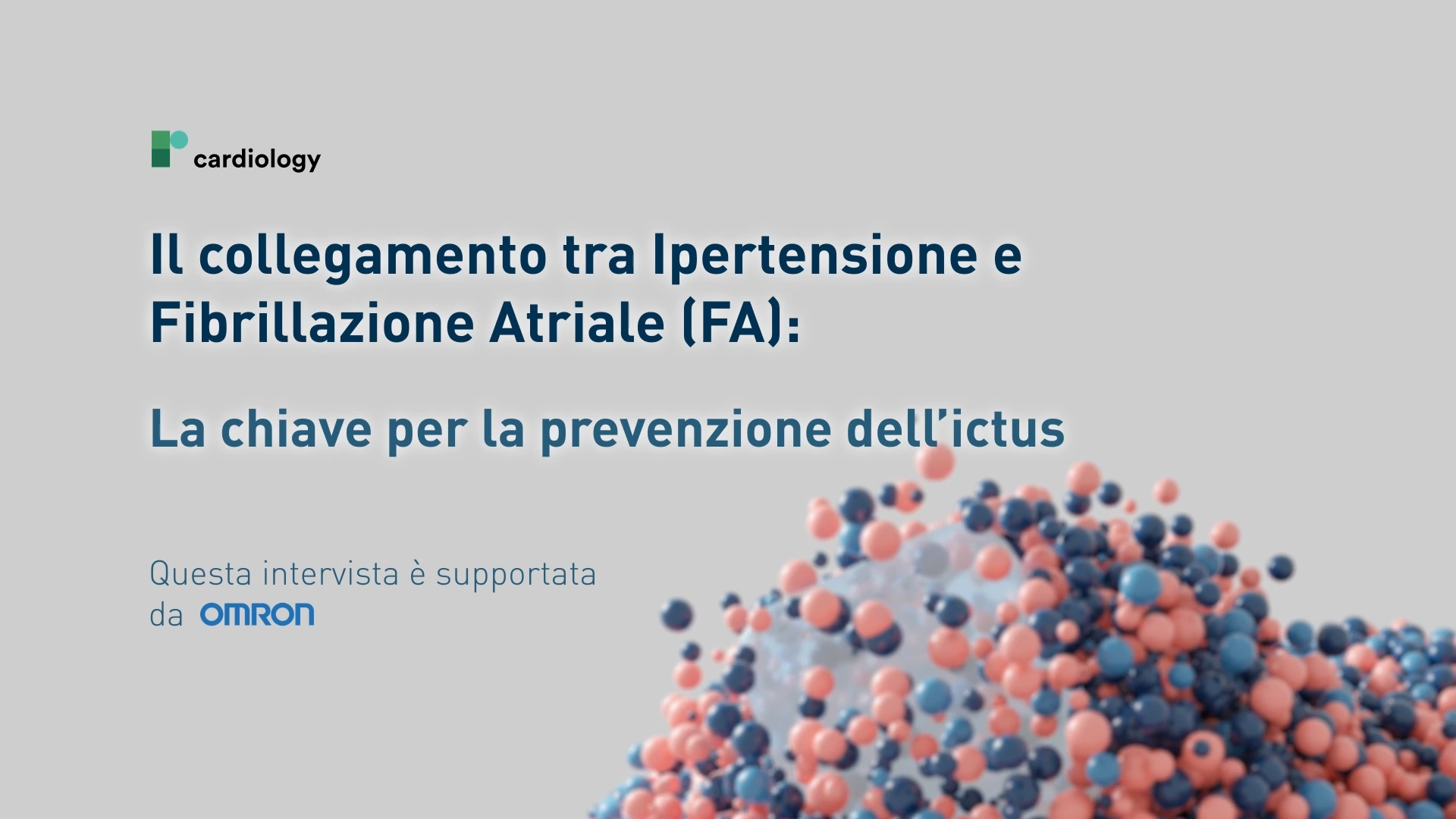
Comments